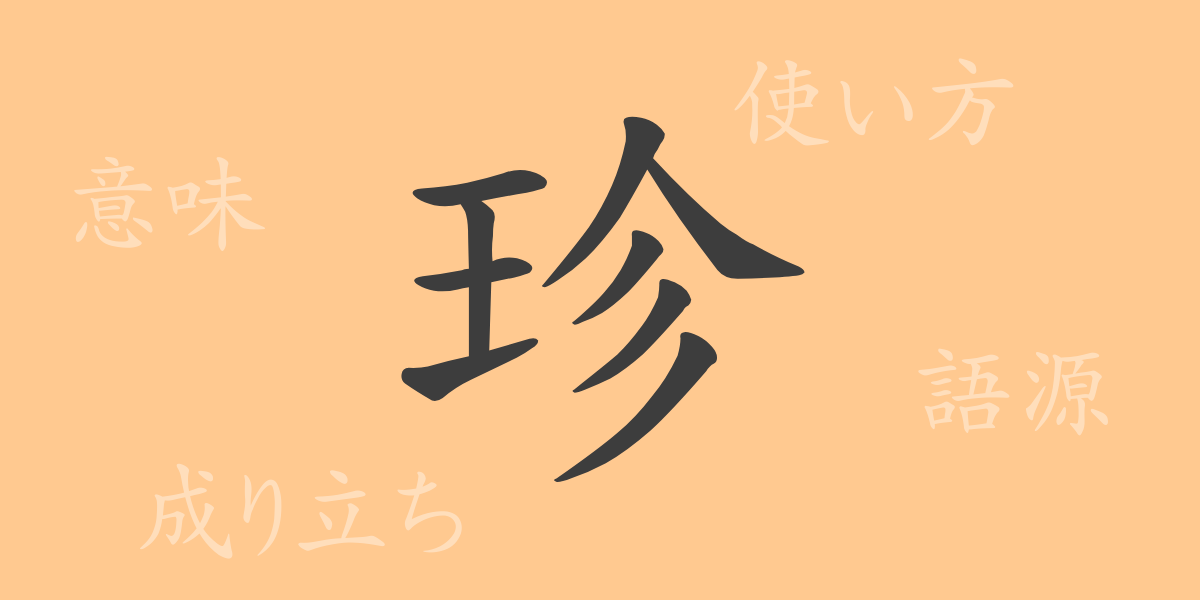The beauty of the Japanese language is also reflected in its complex character system. Each kanji, the Chinese characters used in Japanese, carries a history and tells a unique story. This article focuses on the kanji ‘珍(チン)’, exploring its origins, meanings, usage, and its role in idioms and proverbs to delve into the fascinating world of this character.
Origins of ‘珍(チン)’
The kanji ‘珍’ originated in ancient China, developed to symbolize valuable items through pictographic script. Initially resembling stacked shells, it conveyed the concept of rarity, as shells were used as currency and held exchange value. Over time, the character evolved to embody the notion of rarity or ‘unusual’, and it has become a significant character in various cultures, including Japan.
Meaning and Usage of ‘珍(チン)’
The kanji ‘珍’ means ‘rare’ or ‘valuable.’ In Japanese, it is used to describe things that are uncommon or seldom seen. For example, a plant unique to a certain area might be described as a ‘珍しい植物’, or a rare phenomenon might be called a ‘珍現象’. The character’s application is extensive, reflecting its diverse implications.
Pronunciation, Stroke Count, and Radical of ‘珍(チン)’
Understanding the pronunciation, structure, and form of ‘珍’ can enhance comprehension of its uses:
- Reading: On’yomi ‘チン’, Kun’yomi ‘めずらしい’
- Stroke Count: 9 strokes
- Radical: 玉 (たま or ぎょくへん), meaning ‘jewel’ or ‘ball’
Idioms, Phrases, and Proverbs Using ‘珍(チン)’ and Their Meanings
The kanji ‘珍’ appears in numerous idioms and phrases, each underscoring aspects of rarity or value:
- 珍品(ちんぴん): A rare and valuable item.
- 珍味(ちんみ): A rare delicacy, unusual food.
- 珍事(ちんじ): An event that is rare or unusual.
- 珍客(ちんきゃく): A rare visitor, or a guest of unusual status or nature.
- 珍重(ちんちょう): To treasure something as rare and valuable.
Conclusion on ‘珍(チン)’
The kanji ‘珍’ symbolizes rarity and value, enriching the Japanese language with expressions of special significance or interesting aspects. By understanding its usage and the idioms it features in, we can appreciate the nuanced communication it facilitates. Discovering the meaning and allure hidden in each kanji is part of the journey to deeper understanding of the Japanese language.

























